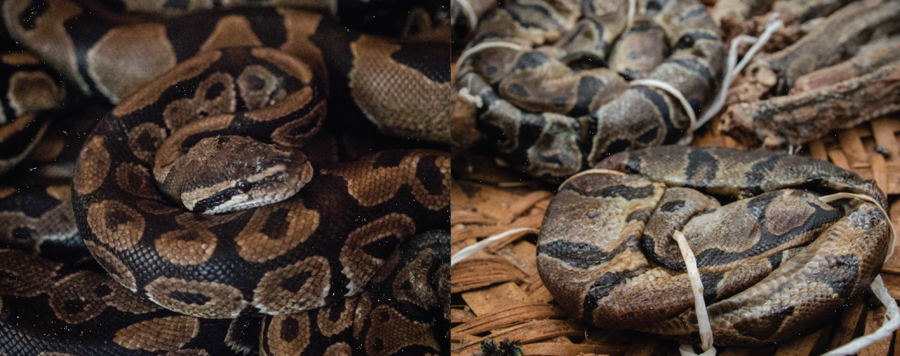
Seeking serpents: Ball python trade in Benin, West Africa
Ball pythons are traded as bushmeat, leather and belief-based medicine in West Africa, and specimens are exported in large numbers for the exotic pet trade. Here, we focused on understanding the purpose and socio-economic context of this trade in Benin through interviews with 44 actors involved in the trade of this species. We provided a snapshot of trade dynamics during a period when hunters are not predominantly actively involved in supplying eggs, neonates and gravid females for ranching and export as exotic pets. Our findings revealed that hunters and traders were largely focused on supplying the bushmeat and medicine markets in West Africa during this time. We estimated that the 21 collectors engaged in hunting in our study collectively hunt between 576 and 5,083 ball pythons from the wild each year. Collection rates reported by some suggests that they could earn more than 15,000 USD from ball python sales in bushmeat markets annually. Ball pythons hunted in Benin were mainly sold to local customers as “bushmeat” (53%) or for belief-based uses (39%) (including “fetish”, “medicinal products” and “voodoo”). However, cross-border trade with neighboring countries of Togo, Nigeria, and Ghana (or even further) also occurred. Although profitable for some, the scale of this practice, together with the widely reported decline in ball python populations in Benin, raises concern about the sustainability and long-term economic viability of this type of large-scale commercial wildlife trade in West Africa, especially as it occurs alongside extensive ranching practices to support the exotic pet trade.






